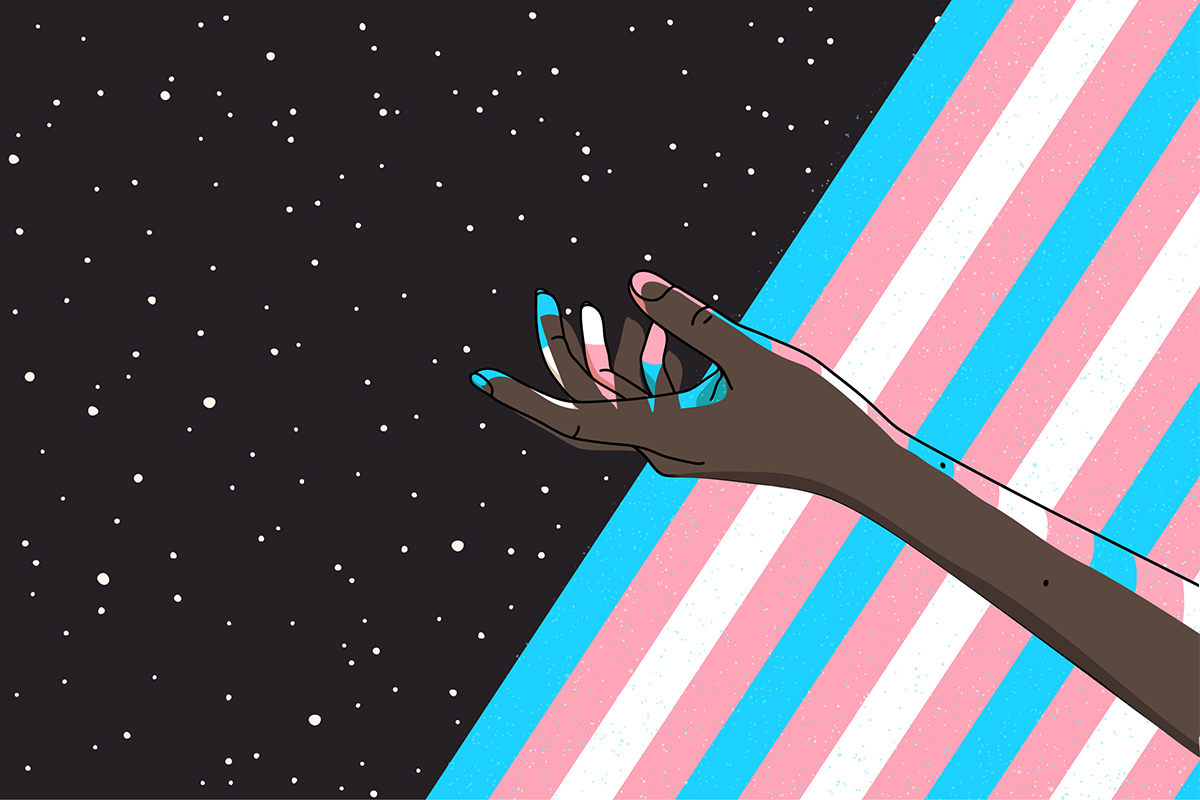This past month has been something of a turning point for the justice of multiple marginalized groups in the United States, as well as the world over. The murder of George Floyd, a Black man in Minneapolis, at the hands of office Derek Chauvin is a story that has been covered ad nauseum and serves as a marker for just how much more we have to go to have true equality. Even more questions are being asked as to whether such a thing is possible within our current capitalist system, in a police state where civilians can seemingly be murdered on a whim. Protests have grabbed the attention and imagination of people in every state and worldwide.
At the same time, June was Pride month, a celebration for the LGBTQ community and a reminder of the struggles our community has been through, suffering from police violence as well in our fight for equality and personhood.
As a Black trans woman, I find myself at the intersection of these two identity groups. Even before I came out and began presenting as the woman I am, I was a target for the police simply because of the color of my skin, and found myself in a situation where a police officer could have executed me. Without sharing too many details of that encounter, a Milwaukee police officer once tried to goad me into being hostile as he put his hand on his gun. I am lucky to be able to write this today.
So, you can imagine how heady a time this has been for me and other Black trans people. We have to fight for justice on multiple fronts, while at the same time trying to bargain our worth within the communities that we call home.
As I log onto my social media platform of choice, nearly every day I am met with some fresh horror and the reminder that this world is utterly hostile to people like me. Seeing police violence against people of color and the literal lynching of Black people in the year 2020 is awful. Seeing Black trans people killed and then almost immediately forgotten has been just as rough on my psyche.
On May 27, one day after protests began for George Floyd, Black transgender man Tony McDade was fatally shot in an apartment complex by an officer of the Tallahassee Police Department. As always with stories of this nature, rumors swirled and conflicting information hit the internet with the speed of a button press. Witnesses of his murder attest to the fact that the cops never identified themselves, told McDade to stop moving, called him the n-word, and then opened fire while he was already motionless. Just like that, another trans life was lost.
You would expect that such an event would become a huge talking point during the most tumultuous period of race-related civil unrest in America since the ‘60s, but that was not the case. While other recent killings of Black people have been attributed to the cause for the protests, George Floyd has been the vocal point. When I have brought up the killing of Tony McDade to people, as well as the recent murders of Black transgender women Riah Milton of Ohio and Rem’Mie Fells of Pennsylvania, I’m usually told by people that they had no idea these deaths had occurred.
At a moment in American culture when we are uniquely attuned on a massive scale to the effect of racism, we have utterly failed to properly acknowledge the most marginalized people in the country. After so long of being left at the wayside in the dustbin of forgotten history — despite all of our work on the frontlines protesting for a better life for all Black people — we deserve better.
Every day, I encounter cisgender members of the Black community openly ridiculing trans people, letting us know in no uncertain terms that we do not get a seat at the table. At the same time, I have dealt with so much racism in the LGBTQ community from white people who believe that they cannot possibly be racist due to their own marginalized identities. My experience in the Jewish community has been similarly mixed. While I have been embraced by so many lovely Jewish people who consider me to be a member of the community, I have also met a stunning number of transphobic feminists and racists within this community. Just waking up every day means constantly navigating a society that does not feel especially welcoming to me, even the communities that should feel like a safe space.
Luckily, not all is bad. I have found so many wonderful friends and a growing base of followers who, if they don’t already understand the exact struggle that I go through, are sympathetic and willing to listen. Slowly but surely, Black trans people have been negotiating our way to the table, even if we are met with a mass amount of disrespect in the process.
And while it seems like it has been happening at a glacial pace, the LGBTQ community has been making inroads into popular society in a way I never would have thought when I was younger. While the legalization of gay marriage was a major coup for the cisgender gay population, in the past year we have seen Black trans people in the spotlight of conversations like never before, with representation in popular media like Pose and marching in the streets leading Black Lives Matter rallies. Even popular rappers like Noname have recently spoken up in strong support of Black trans people.
The important thing to remember in the fight for equality, both on the level of race and gender, is to never give up. Although the end goal may seem a bit out of focus currently, there is something undeniably bright just behind those clouds.
Header image design by Grace Yagel. Original illustration by arvitalya/Getty Images.



